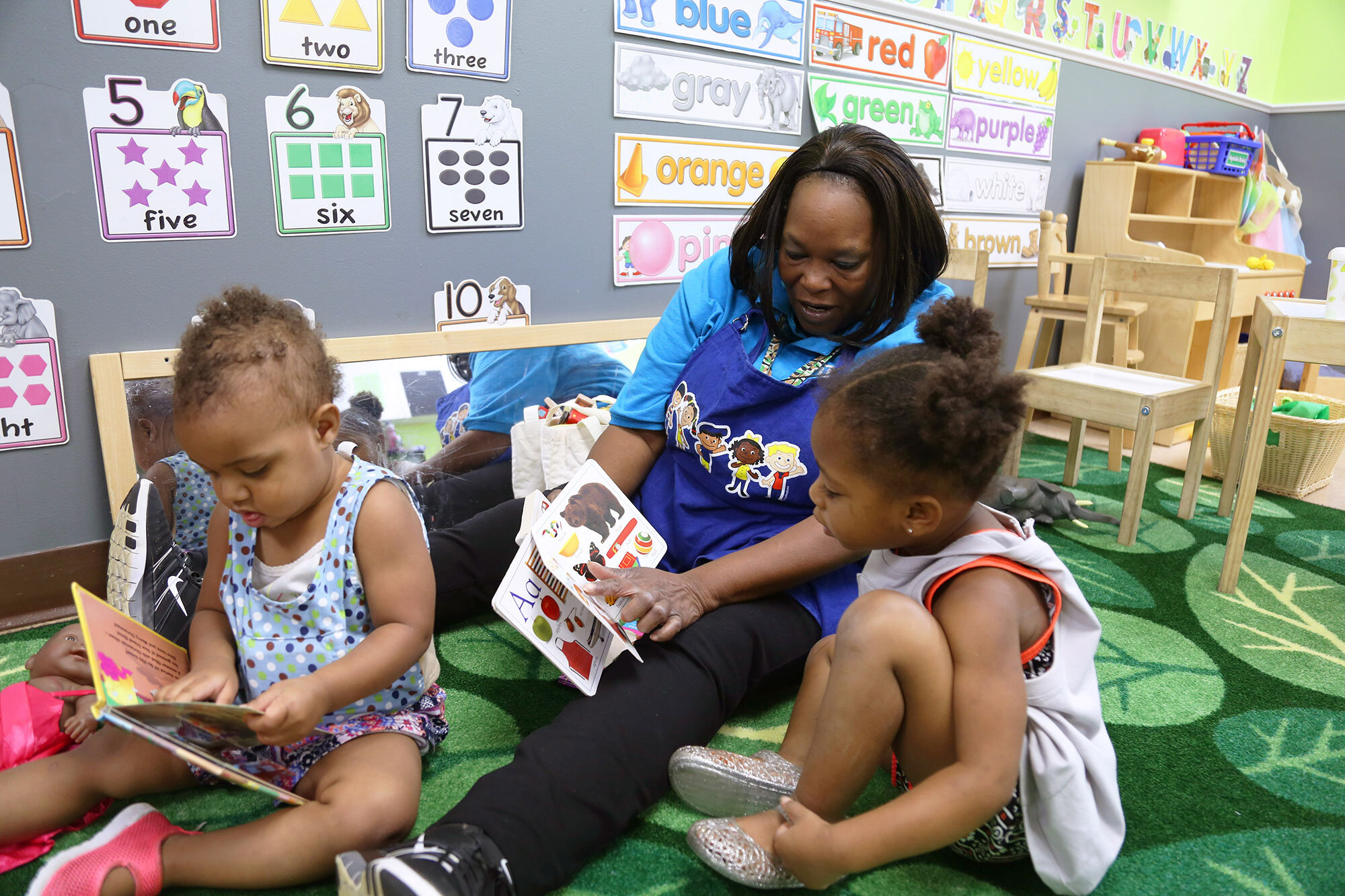Resources for Parents
LENA Start
The LENA Start program helps parents of children ages 0 – 3 years strengthen the home language environments.
8 Questions About Literacy Frequently Asked By Parents And Grandparents
1. How can my child be involved?
The best way to expose your child to the benefits of reading aloud is to begin at home today. Even just 5 minutes a day can make a real difference in your child's listening skills, language development, vocabulary and imagination. Twenty years of research have proven over and over again that: The single most important thing you can do to help your child become a successful reader is to read aloud as early as possible and as often as possible.
2. How do I read to a child who won't sit still?
Try to involve the child by letting him or her choose the book, hold the book and turn the pages. Ask the child to name the objects, colors, or tell you what sound the animal makes or count the butterflies with your help. Take the child's pointing finger and trace the letter, number, or shape on the page.
Keep the session short. Sometimes 5 minutes is an achievement. Let the child stand next to you while you read. If necessary, let the child draw or build block towers while you read for 5 minutes. The child is getting more than you realize. Use finger plays, songs or nursery rhymes as substitutes for stories. These can be said or sung softly in the check-out line at the grocery store. All of these activities are part of reading readiness.
3. My child is 7 and can't read. What can I do and where do I get help?
Reading aloud as a family activity is a great way to reawaken your child's interest in and enjoyment of books. Many seven-year-olds start the year reading poorly or not at all and end up reading very well. The Finns believe that reading aloud should not even be introduced to children until they are seven because so many children are not ready to learn to read---even very bright children. The important thing is not to let your child feel overly discouraged to the point of believing themselves unable to learn to read. That kind of wall is hard to climb over. You can help by helping your child find books on subjects that interest him or her. Many publishers have special readers at varying skill levels; ask your librarian or your book dealer. Every school district has reading specialists you can consult. Making reading an important family activity will give your child the support and encouragement he or she needs to persevere to accomplishment.
4. When should I begin reading aloud to my child?
You can begin reading to your child the day he or she is born. The sound of your voice and the cuddling are comforting and reassuring to the newborn and the story or nursery rhyme you say over and over are incidental. As the child grows older, the content and the type of book becomes more important. We have a bibliography for parents, but we recommend The Read Aloud Handbook by Jim Trelease.
5. My child can read now; I don't need to read aloud anymore, do I?
Even though your child can read, he or she will still enjoy a story read aloud. The child's ability to understand what is read exceeds his or her ability to read it until 8th grade! Seek out reading material that is two to three grade levels above your child's reading ability. Reading a story or a poem at family occasions shows your children how much you value reading and helps build memories you and your children will treasure decades from now.
6. How can I get my child away from the TV? How do you feel about TV?
Every family has to work out their own rules about television, but helping children learn how to manage this resource is one of the best gifts we can give them. There are many wonderful programs available and there are also many of lesser quality. The American Academy of Pediatrics recommends that children younger than 18 months avoid the use of screen media other than video-chatting.
7. What about reading a book on a screen or tablet?
These new resources are just that; an additional resource. There is no substitute for 10 to 20 minutes with you reading aloud every day; but these media are nice supplements which help your child learn to enjoy books.
8. My child has trouble reading. How can I help?
You can help your child become a better reader by making time to read aloud every day. You can take a turn and then the child can take a turn reading what you just read. You can also choose age-appropriate books. You can encourage your grade-schooler to read to a preschooler. Toddler books are usually within a grade-schooler's ability and are easy to read. Reading this easy material to an appreciative audience will reinforce your child's positive feelings about reading and help build confidence.



